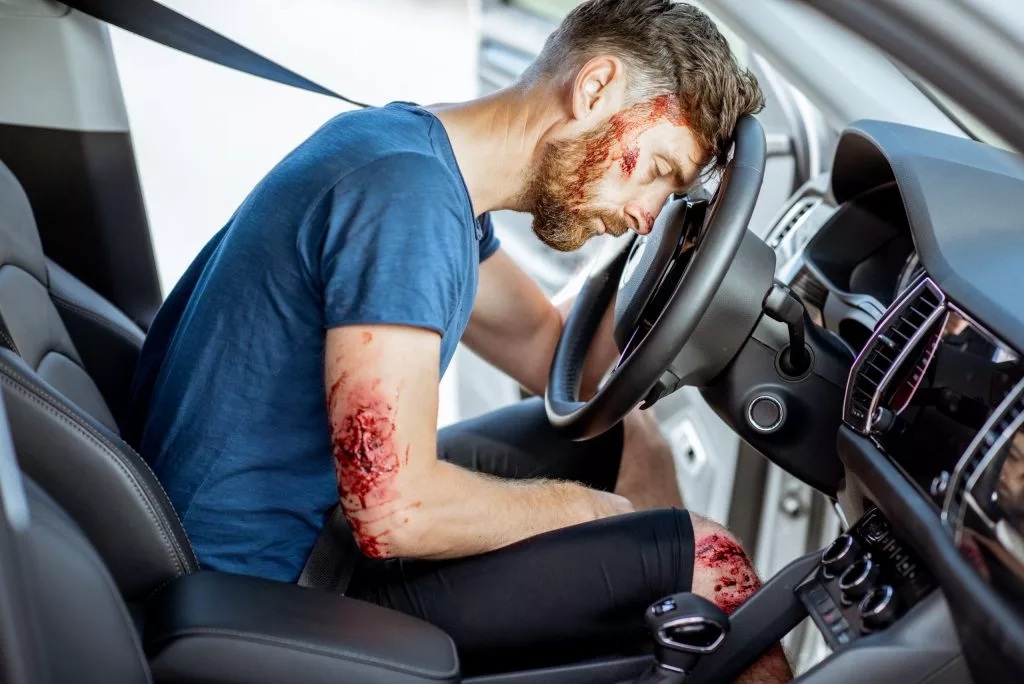A car accident can be a traumatic experience, even if it is just a minor collision. Most drivers develop vehophobia or the fear of driving which is disruptive. People with vehophobia may have a hard time if they rely on driving to earn a living or get to work.
The resulting anxiety and fear can be overwhelming to drivers of all ages. Whether you were the driver, a passenger, or a witness during the accident, it is an unpleasant experience that can leave you feeling uncomfortable whenever you get behind the wheel.
Doctors may recommend a combination of psychotherapy and medication to help you recover from your injuries. However, regaining the confidence to drive takes much more.
Understanding Post-Accident Vehophobia
Vehophobia is the fear of driving. The fear arises from reliving an accident whenever you remember the trauma you experienced during the collision.
A 2007 study for the Assessment and Treatment of PTSD After a Motor Vehicle Accident reported that victims who experience a severe crash are more predisposed to developing psychological disorders.
PTSD symptoms typically appear within 30 days of a collision in up to a third of accidents. Over 50% of victims with PTSD may experience the following symptoms:
• Sleep disturbance
• Memory problems
• Loss of appetite
• Anxiety
• Hopelessness and despair
• Difficulty focusing
If left untreated, these symptoms may have long-lasting effects that affect the victim’s ability to work or return to everyday life.
Victims involved in serious car accidents may also experience hodophobia, the fear of traveling, or amaxophobia, the fear of riding in a car.
The Impact of Vehophobia
Vehophobia is a challenging and complex mental health issue. The trauma of almost dying in a car accident or injuring others is considered a form of PTSD. Unfortunately, vehophobia can go on to affect crash survivors in different ways.
Often victims are afraid to drive for unique reasons. For instance:
• You may be afraid to get into another crash.
• You may suffer extreme anxiety at the thought of getting back behind the wheel.
• You may suffer from panic attacks while driving.
• You may be afraid to harm other road users, passengers, friends, or family.
Fortunately, you can get help from an injury attorney or a healthcare professional. Plenty of research into vehophobia has revealed numerous ways to overcome your fear of driving. There are also many treatment options available.
Symptoms of Vehophobia
People with vehophobia may experience unusual symptoms. Some may suffer debilitating symptoms, while others only have mild signs. Some common indicators that you might have vehophobia include:
• Panic attacks when driving
• Anxiety when faced with the thought of getting inside a vehicle.
• Avoiding traveling via cars
• Physical symptoms such as trembling, sweating, nausea, and increased heart rate.
• Tension while driving
• Excessive worrying about potential accidents
You may also have vehophobia if you are afraid of:
• Causing an accident, even when there is no potential threat.
• Killing or injuring other road users.
If you experience any of the above symptoms after getting involved in an accident, seek professional help. There are numerous treatment options available from mental health providers.
Treatment of Vehophobia
There are different ways to overcome vehophobia. However, some drivers choose to avoid driving entirely and use public transportation.
While it is not a long-term solution, it is the easiest option for most people with vehophobia. You can also explore the different treatment options available such as:
Medication
Medication is not a long-term solution to control vehophobia. However, it can ease anxiety in the short term. Therapists can recommend permanent behavioral and cognitive therapy in addition to medication to relieve vehophobia.
Healthcare providers also prescribe sedatives and beta-blockers for short-term use. Beta-blockers block the effects of adrenaline, such as elevated blood pressure, increased heart rate, and other symptoms to reduce anxiety.
Sedatives can also help patients relax. However, they have a significant risk of dependence and can cause side effects such as drowsiness.
Seek Help from a Mental Health Professional
Speaking to a licensed therapist can help you identify the best recovery methods for your needs. If you suffer from anxiety or depression due to vehophobia, a therapist can recommend cognitive behavioral therapy. They can also help you learn how to cope with the trauma.
Defensive Driving Courses
A defensive driving course is one of the best ways to regain confidence. It is not uncommon to doubt your driving skills after a severe accident.
Taking a defensive driving course is an excellent rehabilitation method.
Enrolling in a class can equip you with the right tools to drive safely and react more efficiently to different road conditions.
Join a Support Group
Support groups are ideal for helping you work through your trauma and process your emotions. You can join various in-person and online groups to talk to people who have gone through similar experiences.
Processing your trauma in a safe space validates your experiences and supports coping with anxiety. Group therapy also provides a significantly positive impact on people living with vehophobia.
Prolonged Exposure Therapy
Cognitive and behavior therapy treats anxiety disorders, PTSD, and obsessive-compulsive disorders that come with vehophobia.
With the help of a licensed therapist, patients re-visit the traumatic incident and confront their fear using imaginal exposure.
PE therapy is a guided process that can help you overcome anxiety. For people with vehophobia, PE therapy can start with riding in a car as the therapist drives around an empty parking lot before progressing to the road or highway.
With each step, the patient learns to confront their fear, and their anxiety may even reduce over time. Mental healthcare providers rate PE therapy highly effective among vehophobia treatments.
Recovering From Vehophobia
If you suffer mild effects of vehophobia, other methods exist to overcome anxiety. These include:
• Confronting your fear: People living with vehophobia with only mild PTSD can begin to face their fear of driving by starting with small steps. If you have severe PTSD, practice this step with a therapist.
• Stay positive: PTSD is not permanent. It is a reaction to a traumatic event that can be managed by staying positive.
• Look at the bigger picture: If driving is part of your daily routine, you must overcome vehophobia to resume your everyday life.
• Do not be discouraged by setbacks: With each step you take towards overcoming PTSD, there will likely be setbacks. Do not be discouraged.
Summary
Fear and anxiety can harm your performance at work and your well-being. Vehophobia can also interrupt your life and cause you to miss important family moments. It can also significantly affect the quality of your life.
People with vehophobia may be unable to continue living independently or go back to their full earning capacity. Luckily, car accident attorneys understand the negative impacts of vehophobia and can help you recover compensation.
If you or a loved one are involved in an accident, you deserve to get treatment for vehophobia. Hiring a car accident attorney can help you recover the cost of treatment, medication, therapy, and other economic damages.
A good lawyer can also help you recover compensation for non-economic damages caused by vehophobia, such as emotional distress and mental anguish. You deserve full and fair compensation if another person’s negligence caused the car accident.
Contact a car accident attorney to learn more about the damages you can recover.


